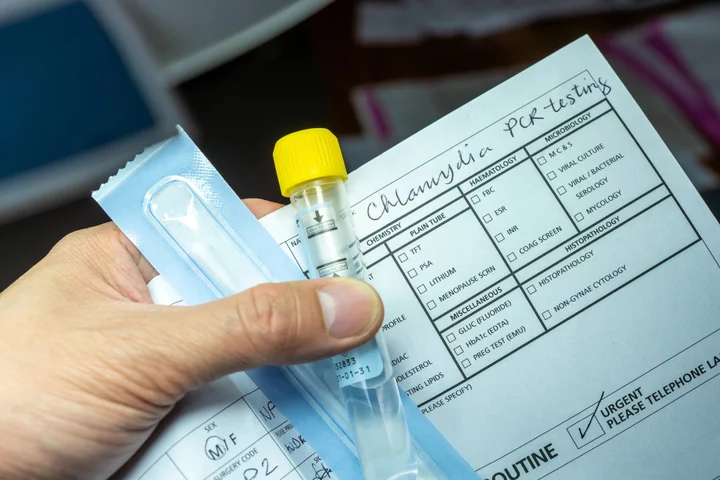Premenstrual Dysphoric Disorder (PMDD) is a severe form of premenstrual syndrome (PMS), and is thought to affect more than one in 20 menstruating women.
Actor and stand-up comedian Bella Humphries suffers from PMDD, and told the BBC: “My period sometimes makes me want to take my life.”
According to the International Association for Premenstrual Disorders (IAPMD), 34% of the people who have been diagnosed with the condition have attempted suicide.
Humphries, 29, continued: “It’s secrecy and silence that will kill people, not the disease or the disorder.”
According to the IAPMD, it takes on average 12 years to be diagnosed with the condition. Here’s everything you need to know about it…
What is PMDD?
PMDD is a severe form of PMS, and is characterised by debilitating physical and emotional symptoms that occur during the time between ovulation and when the period is due to begin.
This is known as the luteal phase and lasts around two weeks – although the length can vary from person to person.
In June 2019, the World Health Organisation (WHO) added PMDD to the International Statistical Classification of Diseases and Related Health Problems, meaning it’s now recognised as a legitimate medical diagnosis.
What are the symptoms?
People with PMDD might experience a broad range of symptoms, and it’s different for everyone.
“In PMDD, symptoms are extreme and can seriously impact quality of life, work and relationships. Many women report feeling suicidal,” said Dr Ghazala Aziz-Scott, a specialist in integrative women’s health and bioidentical hormone balancing for the Marion Gluck Clinic.
“Symptoms can be cyclical and chronic – they include mood swings, anger, irritability, anger, anxiety, depression, anhedonia [the reduced ability to experience pleasure], fatigue, and brain fog. Physical symptoms include breast tenderness, headaches, bloating, food cravings, and insomnia.”
Are there any treatments?
Treatments can include “antidepressants, oral contraception and counselling”, said physician associate Simisola Ade. “A discussion with a doctor should be had to decide on what treatment is appropriate and how bad the PMDD symptoms are.”
Aziz-Scott continued: “PMDD has a complex aetiology [causes] and it is vital to evaluate the root cause of the hormonal imbalance and if there are also any coexisting psychiatric conditions.
“A healthy diet and good lifestyle can go a long way in supporting the body, B6 and magnesium supplementation are helpful and the use of natural progesterone in the second half of the cycle can be very beneficial.”
What other things can people do to help?
“Women who have PMDD need to be mindful and easy with themselves. Self-care is very important,” said Ade. “Also keeping a cycle diary is key, especially if you suspect you have PMDD, because some people aren’t aware that they have PMDD until they actually start tracking their symptoms and notice that they are cyclical. This can also help diagnosis and treatment be much quicker.
“Talking to other people who have PMDD can be very beneficial too. There are international organisations that can help. Be open with your doctor and tailor treatments for yourself to ensure you put things in place when you are in that luteal phase. Getting to know your PMDD symptoms will help to make those symptoms more bearable.”
Dr Adiele Hoffman, medical advisor at Flo Health agrees and said: “It’s very common to experience both emotional and physical discomfort in the days leading up to your period. However, these symptoms should not be so severe that they significantly impact your life, work, your family, or your other relationships.
“But if they do, however, consistently affect your life, you should show these logs to a doctor. It can be very helpful for the doctor prescribing appropriate treatment. Most importantly, remember that no one should have to live with debilitating PMDD symptoms.”
Read MoreCharity boss speaks out over ‘traumatic’ encounter with royal aide
Ukraine war’s heaviest fight rages in east - follow live
JW Anderson is teaming up with a major tennis star for new collection
N-Dubz cement comeback with first new album in 13 years
Irregular sleep patterns linked to harmful gut bacteria, study suggests









